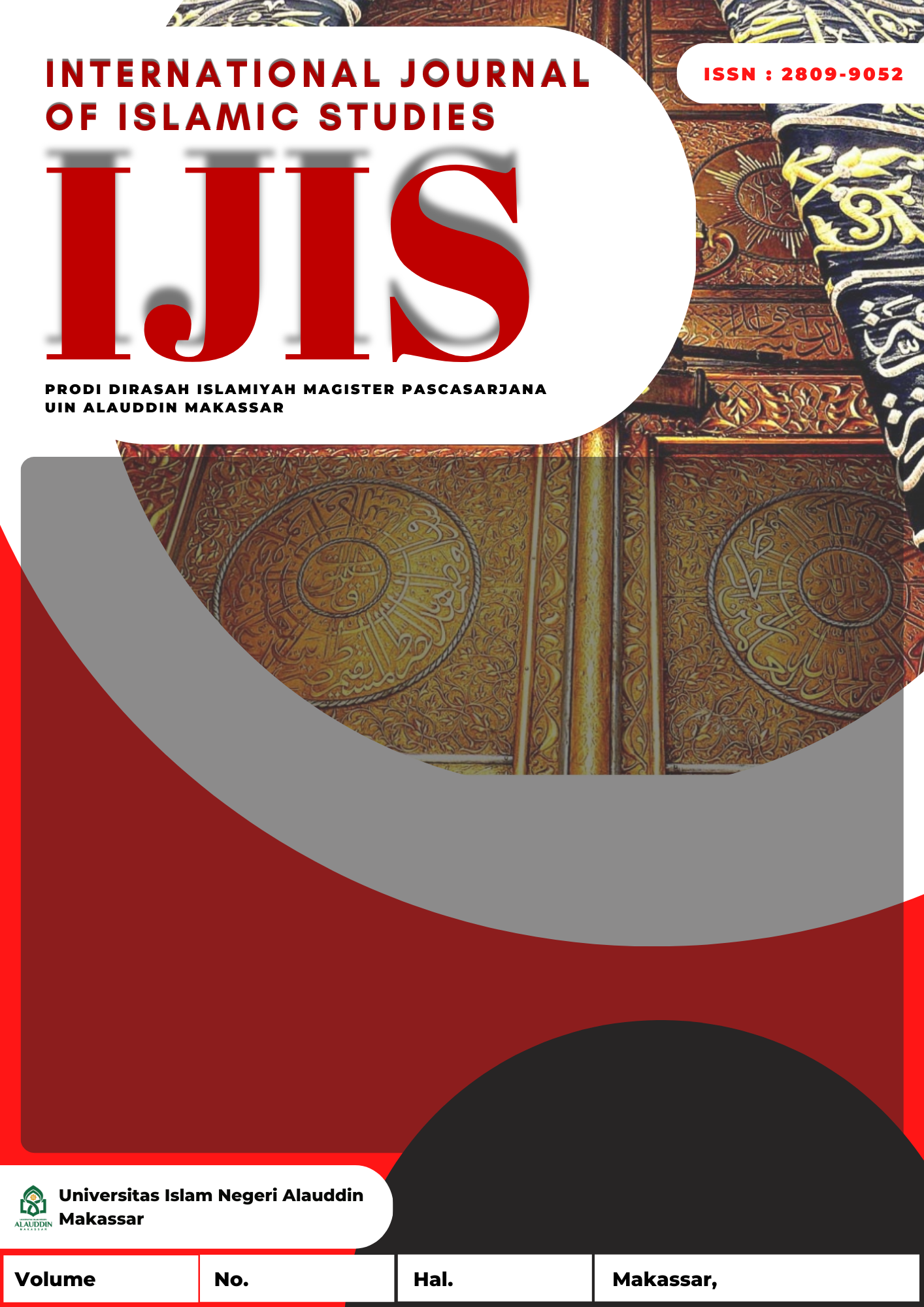THE MAPPAJE TRADITION OF THE COMMUNITY OF PARENRENG VILLAGE, SEGERI DISTRICT, PANGKEP REGENCY
Abstrak
The type of research used in this study is descriptive qualitative research, regarding the Mappaje tradition in wedding parties in the Bugis-Makassar community, especially in Parenreng Village, Segeri District, Pangkep Regency by taking field data (Field Research). The data obtained in the form of descriptive data with the form of spoken or written words from informants and actors that can be considered. The Mappaje' tradition is contrary to Islamic law regarding the issue of faith where they believe when doing Mappaje' to obtain salvation and prevent evil while in Islamic values and teachings it requires Muslims to only depend on Allah SWT and nothing can bring good or bad, even badness except by the power of Allah SWT.
Referensi
Abdullah,Irwani. Cultural Construction and Reproduction. Yogyakarta: Pustaka Pelajar, 2006.
Ahmad, Abd. Kadir. Bugis Clerics Makassar: Balai Penelitian dan Pengembangan Agama Makassar, 2008.
Asep Maulana, Rohimat. Contemporary Usul Fiqhi. Yogyakarta: Lintang Pustaka Utama, 2021.
Baidawi, Zakiyuddin dan Mutaharrum Jinan. Religion and the Plurality of Local Culture. Surakarta: PSB-PS UMS, 2002.
Bukhari. “Islam and Local Traditions in the Archipelago, A Critical Study of Batteng Pellets in the Madurese Community in the Perspective of Islamic Law”, al-Mashlaha 13. No. 2 (2017), P. 2.
Hakim, Atang Abd. &JaihMubarok. The Methodology of Islamic Study. Bandung: PT RemajaRosdakarya, 2008.
Hasan, Nor. The Contact of Islam and Local Culture: Unraveling the traditions of Popular Society. Pamekasan: Duta Media Publishing, 2018.
Hayatudin, Amrullah. Usul Fiqih: The Middle way of Understanding Islamic Law. Jakarta: AMZAH, 2019.
Hermawan, Iwan. Usul Fiqh: The Islamic Law Study Method Kuningan: Hidayatul Qurán, 2019.
Ibrahim, Duksi. Method of Determination of Islamic Law: Unpacking the Concept of Al-istiqra’al-Ma’nawi Asy-Syatibi. Jogjakarta: Ar-Ruzz Media, 2008.
Mahmuddin. Looking to the Future of Islam. Makassar: Alauddin University Press, 2013.
Muher, Abdul. “The Dynamics of Religious Harmony in Ambon City Based on Indigenous Perspective Maslaha” Disertasi. Makassar: Pascasarjana UIN Alauddin, 2020.
Mulyasana, Dedi. Treasures of Islamic Education Thought: From Local Discourse to Global Order Bandung: CV Cendikia Press, 2020.
Nawir HK, “Tradition Medicine Read and Read on the People of Balang Caddi Island, Pangkep Regency, perspective of Islamic law”. Tesis. Makassar: Pascasarjana UIN Alauddin Makassar, 2020.
Otta, Yusno Abdullah. The Dynamics of Islamic Traditions in the Era of Globalization: A Study on the Religious Traditions of Kampung Jawa Tondano, Reflective Sociology 10, no. 1 (2015): p. 16.
Poerwanto, Hari. Culture Environment in Anthropological Perspective. Yogyakarta: Pustaka Pelajar, 2000.
Pranowo, Bambang. The Factual Islam Between Tradition and Power Relations. Yogyakarta: AdiciptaKarya Nusa, 1998.
Sabara. “Islam in the Tradition of Local People in South Sulawesi”. MIMIKRI 4, no 1 (2015), h.6.
Sewang, Ahmad M. Islamization of the Kingdom of Gowa: XVI to XVII Centuries. Jakarta: Media Grafika, 2005.
Sofyan dan Kasim Yahiji. Islamic Acculturation and Local Culture : Quiet Islamic Studies Rites of Life in Local MuslimTraditions Gorontalo. Malang: Inteligensia Media, 2019.
Sofyan dan Kasim Yahiji. Islamic Acculturation and Local Culture: Islamic Studies on the Rites of Life in Local Muslim Traditions of Gorontalo, P. 22.
Supropto. Dialectics of Islam and Archipelago Culture : From Negotiation, Adaptation, to Commodification. Jakarta: Kencana, 2020.
Supropto. Islamic Dialectic and Archipelago Culture: From Negotiation, Adaptation, to Commodification. Jakarta: Kencana, 2020.
Syam, Nur. The Coastal Islam. Yogyakarta: LKis, 2005.
Tahmid, Muhammad dkk. The Reality of ‘Urf in the Realization of Islamic Law Reform in Indonesia Pamekasan: Duta Media Publishing, 2020.
Wahid, Maykur. Paul Ricoeur’s Theory of Interpretation. Yogyakarta: Lkis, 2015.
Warsito. Culture Anthropology. Yogyakarta: Penerbit Ombak, 2012.
Authors who publish with this journal agree to the following terms:
1) Authors retain copyright and grant the journal right of first publication with the work simultaneously licensed under a Creative Commons Attribution License that allows others to share the work with an acknowledgement of the work's authorship and initial publication in this journal.
2) Authors are able to enter into separate, additional contractual arrangements for the non-exclusive distribution of the journal's published version of the work (e.g., post it to an institutional repository or publish it in a book), with an acknowledgement of its initial publication in this journal.
3)Authors are permitted and encouraged to post their work online (e.g., in institutional repositories or on their website) prior to and during the submission process, as it can lead to productive exchanges, as well as earlier and greater citation of published work (See The Effect of Open Access).







